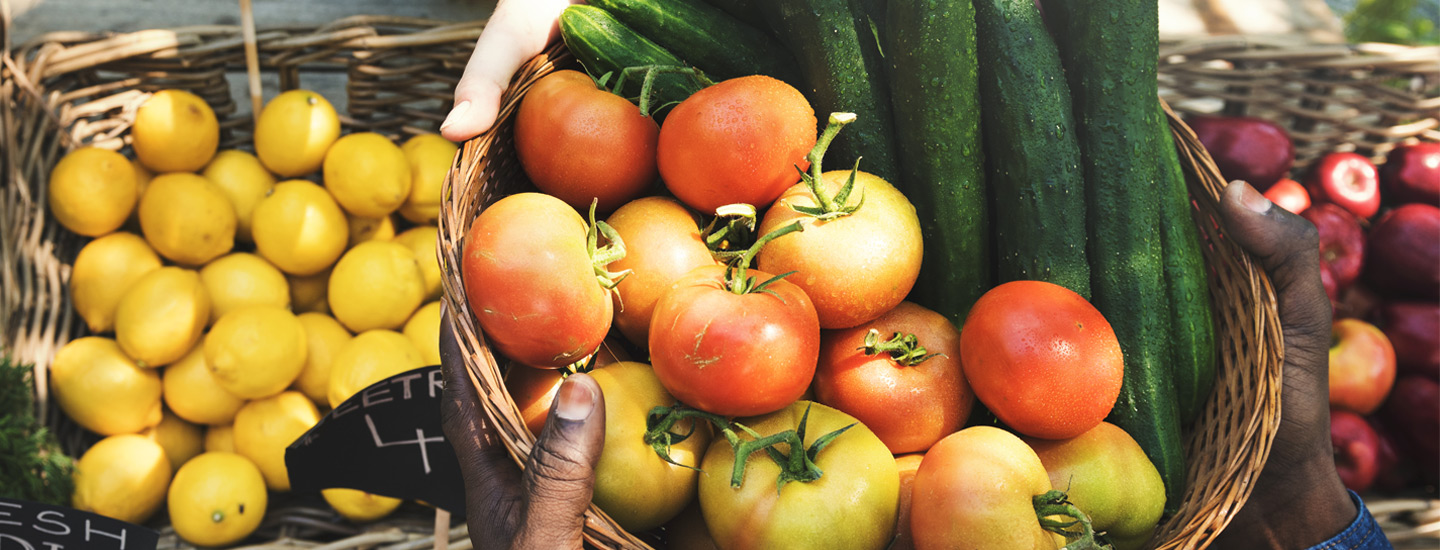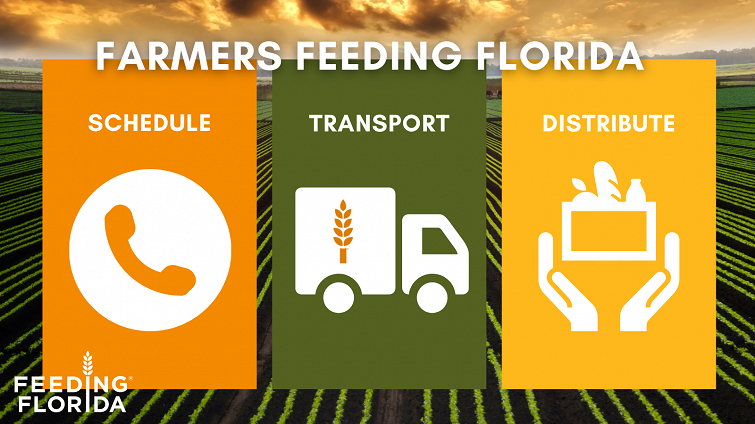This Agriculture Appreciation Day, we want to extend our deepest gratitude to the individuals who are responsible for providing fresh, local produce – our farmers! Feeding Florida’s produce recovery initiative works in partnership with growers & packers throughout the state to rescue and distribute wholesome and cosmetically blemished produce that can help to ease this burden.
This program, Farmers Feeding Florida (FFF) was created in 2010 with the primary mission of obtaining excess crop volumes from Florida growers and distributing that product to needy Floridians. The Feeding Florida food bank network became the logistics bridge that helped ensure that this product made its way to a family’s table. This program has been supported by legislative funding, which is distributed directly to our 12 network member food banks based on need in their area. Speaking of logistics, that role goes to Sherri Atwell, Produce Procurement Director. She either receives produce donations from farmers or reaches out to growers in our Farmers Feeding Florida program to allocate fresh produce for our food banks. It’s a non-stop job of connecting dozens of growers across the state to food banks in Florida and beyond, tracking every part of food and reconciling details.
Our food banks then use these allocated funds to cover the Pick and Pack Out (PPO) expenses that are paid directly to local growers. These PPO expenses include transporting the produce. Over the past six years, we have worked diligently to optimize funds going directly back to the agricultural community. By covering the PPO expenses, Feeding Florida is able to create a mutually beneficial relationship with local growers all while supporting the Florida economy.
Once the fresh produce arrives at one of our food banks, it is immediately inspected for quality. Most of the time, the way the food arrives is the way it is stored and distributed. For example, potatoes often arrive in bulk, and they are distributed using those same containers or sorted with other similar produce. Our food banks then distribute based on which agencies (partner food pantries) have the infrastructure and capacity to take produce with a shorter shelf-life or to the mobile pantries that are capable of turning around produce quickly.
Today, our network partners with about 50 farmers, producers and Florida-based companies to put fresh, local produce on the tables of millions of Floridians each year. Through our Farmers Feeding Florida program, our network can continue to support our local growers and provide Florida families with the freshest local produce possible all-year round.


